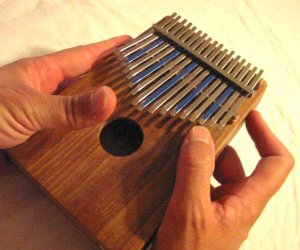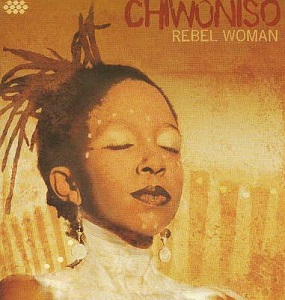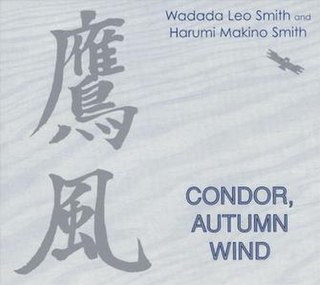
Mbira are a family of musical instruments, traditional to the Shona people of Zimbabwe. They consist of a wooden board with attached staggered metal tines, played by holding the instrument in the hands and plucking the tines with the thumbs, the right forefinger, and sometimes the left forefinger. Musicologists classify it as a lamellaphone, part of the plucked idiophone family of musical instruments. In Eastern and Southern Africa, there are many kinds of mbira, often accompanied by the hosho, a percussion instrument. It is often an important instrument played at religious ceremonies, weddings, and other social gatherings. The "Art of crafting and playing Mbira/Sansi, the finger-plucking traditional musical instrument in Malawi and Zimbabwe" was added to the UNESCO Representative List of the Intangible Cultural Heritage of Humanity in 2020.

Zimbabwean music is heavily reliant on the use of instruments such as the mbira, Ngoma drums and hosho. Their music symbolizes much more than a simple rhythm, as the folk and pop style styled music was used as a symbol of hope for Zimbabweans looking to gain independence from Rhodesia. Music has played a significant role in the history of Zimbabwe, from a vital role in the traditional Bira ceremony used to call on ancestral spirits, to protest songs during the struggle for independence. The community in Zimbabwe used music to voice their resistance to their oppression, as one of the only weapons they had available to fight back with. In the eighties, the Music of Zimbabwe was at the center of the African Music scene thanks to genres such as Sungura and Jit. However, several performers were banned by state TV and radio leading to the closing of several music venues.

A lamellophone is a member of the family of musical instruments that makes its sound by a thin vibrating plate called a lamella or tongue, which is fixed at one end and has the other end free. When the musician depresses the free end of a plate with a finger or fingernail, and then allows the finger to slip off, the released plate vibrates. An instrument may have a single tongue or a series of multiple tongues.
Shona music is the music of the Shona people of Zimbabwe. There are several different types of traditional Shona music including mbira, singing, hosho and drumming. Very often, this music will be accompanied by dancing, and participation by the audience. In Shona music, there is little distinction between the performer and the audience, both are often actively involved in the music-making, and both are important in the religious ceremonies where Shona music is often heard.

That's the Way of the World is the sixth studio album by American band Earth, Wind & Fire, released on March 3, 1975, by Columbia Records. It was also the soundtrack for a 1975 motion picture of the same name. The album rose to No. 1 on both the Billboard 200 and Top Soul Albums charts. That's the Way of the World has also been certified Triple Platinum in the U.S. by the RIAA. In 2002, the band released live version of the album, recorded in 1975 – That's the Way of the World: Alive in '75.
Ephat Mujuru (1950–2001), was a Zimbabwean musician, one of the 20th century's finest players of the mbira, a traditional instrument of the Shona ethnic group of Zimbabwe.
Abraham Dumisani Maraire, known to friends as "Dumi", was a Zimbabwean musician. He was a master performer of the mbira, a traditional instrument of the Shona people of Zimbabwe. He specialized in the form of mbira called nyunga nyunga, as well as the Zimbabwean marimba. He introduced Zimbabwean music to North America, initiating a flourishing of Zimbabwean music in the Pacific Northwest that continues into the 21st century.
Musekiwa Chingodza is a Zimbabwean mbira and marimba player and teacher. He was born in 1970 in Zimbabwe.
Articles related to Zimbabwe include:

Chiwoniso Maraire was a Zimbabwean singer, songwriter, and exponent of Zimbabwean mbira music. She was the daughter of Zimbabwean mbira master and teacher Dumisani Maraire. Describing the mbira, an instrument traditionally used by male musicians, she said, "It is like a large xylophone. It is everywhere in Africa under different names: sanza, kalimba, etc. For us in Zimbabwe it is the name for many string instruments. There are many kinds of mbiras. The one that I play is called the nyunga nyunga, which means sparkle-sparkle."
Sibusiswe "Busi" Ncube is a female mbira musician and singer from Zimbabwe, who sings in six African languages. She play the guitar, mbira and percussions.

Spires That in the Sunset Rise is an American psychedelic folk band from Decatur, Illinois. The four original members of the band grew up together in Decatur, Illinois, eventually moving to Chicago, Illinois where they began to experiment with creating songs. Drawing from experimental and multi-cultural music, they created an individual sound which they debuted on their first self-titled album Spires That in the Sunset Rise. The first album was created without Taralie's sister Tracy Peterson, but she soon joined the group before the making of their second album 'Four Winds the Walker.' A year later they created their third album 'This Is Fire' which today is considered one of their most accessible albums thus far. Since the release of their first album, they have contributed a different slant to the New Folk movement by incorporating avant garde influences resulting in a unique sound. Their music has drawn comparisons to The Raincoats, Current 93, Comus, and The Ex, and they have toured throughout the United States, Canada, and Europe.

Pieces of Africa is a 1992 studio album by the Kronos Quartet, containing works commissioned by the quartet, written by seven African composers.

Rebel Woman is a 2008 album by Chiwoniso Maraire and her first international release in more than 10 years, released via the U.S.-based independent label Cumbancha. Chiwoniso's music on the album incorporates elements of traditional African music, British rhythm and blues, and modern African sounds, particularly those of Zimbabwe. The tracks are backed by the sounds of the traditional Marimba.

Peter Mujuru, known by his mononym Mashasha, is a Zimbabwean musician, bass guitarist, singer, songwriter and producer based in the UK. He is widely regarded as an original and important new voice in African music. His debut studio album, Mashasha, which was released by Elegwa Music in 2011; it was acclaimed by critics internationally and won a Zimbabwe Music and Arts (ZIMAA) award for Best Album.
Mukudzeyi Mukombe, better known as Jah Prayzah, is a Zimbabwean contemporary musician and lead member of the band Third Generation. Regarded as the most prolific musician of his generation in the country, he was popularly referred to by fans and media as "Masoja", the Shona word for "soldier", a name he earned mostly because of his signature band uniform of military regalia. The name "Jah Prayzah" comes from his name, "Mukudzeyi", which means "Praise Him".

Condor, Autumn Wind is a live album by American jazz trumpeter Wadada Leo Smith recorded with Harumi Makino Smith. The album is dedicated to Sarhanna, Kashala and Lamar, in special memory of Dizzy Gillespie.
Clive 'Mono' Mukundu is a Zimbabwean music producer, composer, and multi-instrumentalist largely known as a guitarist. He is also an author. Mukundu has featured on more than 1000 albums and over 200 singles from 1988 to date.
Draze is a Zimbabwean-American hip hop artist, songwriter, producer and social justice activist. He is known for blending traditional African sounds, marimba, and mbira with hip hop music. He won an Emmy Award in 2022.